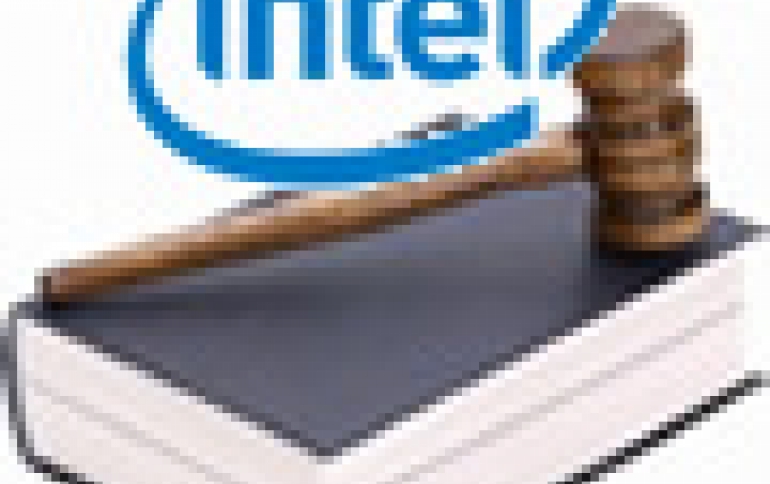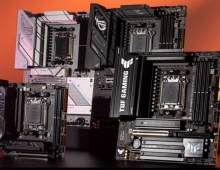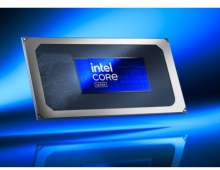
FTC Challenges Intel's Dominance of Worldwide Microprocessor Markets
The Federal Trade Commission today sued Intel charging that the company has illegally used its dominant market position for a decade to stifle competition and strengthen its monopoly.
In its complaint, the FTC alleges that Intel has waged a systematic campaign to shut out rivals? competing microchips by cutting off their access to the marketplace. In the process, Intel deprived consumers of choice and innovation in the microchips that comprise the computers? central processing unit, or CPU.
According to the FTC complaint, Intel?s anticompetitive tactics were designed to put the brakes on superior competitive products that threatened its monopoly in the CPU microchip market. Over the last decade, this strategy has succeeded in maintaining the Intel monopoly at the expense of consumers, who have been denied access to potentially superior, non-Intel CPU chips and lower prices, the complaint states.
"Intel has engaged in a deliberate campaign to hamstring competitive threats to its monopoly," said Richard A. Feinstein, Director of the FTC?s Bureau of Competition. "It?s been running roughshod over the principles of fair play and the laws protecting competition on the merits. The Commission?s action today seeks to remedy the damage that Intel has done to competition, innovation, and, ultimately, the American consumer."
The FTC?s administrative complaint charges that Intel carried out its anticompetitive campaign using threats and rewards aimed at the world?s largest computer manufacturers, including Dell, Hewlett-Packard, and IBM, to coerce them not to buy rival computer CPU chips. Intel also used this practice, known as exclusive or restrictive dealing, to prevent computer makers from marketing any machines with non-Intel computer chips.
In addition, allegedly, Intel secretly redesigned key software, known as a compiler, in a way that deliberately stunted the performance of competitors? CPU chips. Intel told its customers and the public that software performed better on Intel CPUs than on competitors? CPUs, but the company deceived them by failing to disclose that these differences were due largely or entirely to Intel?s compiler design.
Having succeeded in slowing adoption of competing CPU chips over the past decade until it could catch up to competitors like AMD, Intel allegedly once again finds itself falling behind the competition ? this time in the critical market for graphics processing units, commonly known as GPUs, as well as some other related markets. These products have lessened the need for CPUs, and therefore pose a threat to Intel?s monopoly power.
Intel has responded to this competitive challenge by embarking on a similar anticompetitive strategy, which aims to preserve its CPU monopoly by smothering potential competition from GPU chips such as those made by Nvidia, the FTC complaint charges. As part of this latest campaign, Intel misled and deceived potential competitors in order to protect its monopoly. The complaint alleges that there also is a dangerous probability that Intel?s unfair methods of competition could allow it to extend its monopoly into the GPU chip markets.
To remedy the anticompetitive damage alleged in the complaint, the FTC is seeking an order which includes provisions that would prevent Intel from using threats, bundled prices, or other offers to encourage exclusive deals, hamper competition, or unfairly manipulate the prices of its CPU or GPU chips. The FTC also may seek an order prohibiting Intel from unreasonably excluding or inhibiting the sale of competitive CPUs or GPUs, and prohibiting Intel from making or distributing products that impair the performance?or apparent performance?of non-Intel CPUs or GPUs.
Intel on Wednesday dismissed as "misguided" FTC's suit:
"Intel has competed fairly and lawfully. Its actions have benefitted consumers. The highly competitive microprocessor industry, of which Intel is a key part, has kept innovation robust and prices declining at a faster rate than any other industry. The FTC's case is misguided. It is based largely on claims that the FTC added at the last minute and has not investigated. In addition, it is explicitly not based on existing law but is instead intended to make new rules for regulating business conduct. These new rules would harm consumers by reducing innovation and raising prices," Intel said in a statement.
Intel senior vice president and general counsel Doug Melamed added, "This case could have, and should have, been settled. Settlement talks had progressed very far but stalled when the FTC insisted on unprecedented remedies ? including the restrictions on lawful price competition and enforcement of intellectual property rights set forth in the complaint -- that would make it impossible for Intel to conduct business."
"The FTC's rush to file this case will cost taxpayers tens of millions of dollars to litigate issues that the FTC has not fully investigated. It is the normal practice of antitrust enforcement agencies to investigate the facts before filing suit. The Commission did not do that in this case," said Melamed.
The FTC's action comes even after Intel agreed to pay AMD $1.25 billion in November to settle their legal disputes.
AMD had withdrawn all its regulatory complaints and litigation against Intel, ending a 12-year global campaign.
But Nvidia has continued its fight against Intel, calling for scrutiny of its graphics processing units (GPUs), often used in mobile phones, personal computers and game consoles.
"We applaud today's action by the U.S. Federal Trade Commission," Nvidia said in a statement.
"We are particularly pleased to see scrutiny being placed on Intel's behavior toward GPUs, which have become an increasingly important part of the PC industry."
A trial before an FTC administrative judge could begin in September. If Intel loses at that level, it can appeal to the full commission.
Regulators in Asia and Europe have also taken action against Intel because of controversial pricing incentives.
The European Commission fined Intel $1.2 billion in May 2009 and ordered it to change certain business practices.
In June 2008, South Korea fined Intel some $26 million, finding it offered rebates to PC makers in return for not buying microprocessors made by AMD.
In 1999, the FTC and Intel settled charges that the chip maker used its market power to defend its dominance of the microprocessor market.
According to the FTC complaint, Intel?s anticompetitive tactics were designed to put the brakes on superior competitive products that threatened its monopoly in the CPU microchip market. Over the last decade, this strategy has succeeded in maintaining the Intel monopoly at the expense of consumers, who have been denied access to potentially superior, non-Intel CPU chips and lower prices, the complaint states.
"Intel has engaged in a deliberate campaign to hamstring competitive threats to its monopoly," said Richard A. Feinstein, Director of the FTC?s Bureau of Competition. "It?s been running roughshod over the principles of fair play and the laws protecting competition on the merits. The Commission?s action today seeks to remedy the damage that Intel has done to competition, innovation, and, ultimately, the American consumer."
The FTC?s administrative complaint charges that Intel carried out its anticompetitive campaign using threats and rewards aimed at the world?s largest computer manufacturers, including Dell, Hewlett-Packard, and IBM, to coerce them not to buy rival computer CPU chips. Intel also used this practice, known as exclusive or restrictive dealing, to prevent computer makers from marketing any machines with non-Intel computer chips.
In addition, allegedly, Intel secretly redesigned key software, known as a compiler, in a way that deliberately stunted the performance of competitors? CPU chips. Intel told its customers and the public that software performed better on Intel CPUs than on competitors? CPUs, but the company deceived them by failing to disclose that these differences were due largely or entirely to Intel?s compiler design.
Having succeeded in slowing adoption of competing CPU chips over the past decade until it could catch up to competitors like AMD, Intel allegedly once again finds itself falling behind the competition ? this time in the critical market for graphics processing units, commonly known as GPUs, as well as some other related markets. These products have lessened the need for CPUs, and therefore pose a threat to Intel?s monopoly power.
Intel has responded to this competitive challenge by embarking on a similar anticompetitive strategy, which aims to preserve its CPU monopoly by smothering potential competition from GPU chips such as those made by Nvidia, the FTC complaint charges. As part of this latest campaign, Intel misled and deceived potential competitors in order to protect its monopoly. The complaint alleges that there also is a dangerous probability that Intel?s unfair methods of competition could allow it to extend its monopoly into the GPU chip markets.
To remedy the anticompetitive damage alleged in the complaint, the FTC is seeking an order which includes provisions that would prevent Intel from using threats, bundled prices, or other offers to encourage exclusive deals, hamper competition, or unfairly manipulate the prices of its CPU or GPU chips. The FTC also may seek an order prohibiting Intel from unreasonably excluding or inhibiting the sale of competitive CPUs or GPUs, and prohibiting Intel from making or distributing products that impair the performance?or apparent performance?of non-Intel CPUs or GPUs.
Intel on Wednesday dismissed as "misguided" FTC's suit:
"Intel has competed fairly and lawfully. Its actions have benefitted consumers. The highly competitive microprocessor industry, of which Intel is a key part, has kept innovation robust and prices declining at a faster rate than any other industry. The FTC's case is misguided. It is based largely on claims that the FTC added at the last minute and has not investigated. In addition, it is explicitly not based on existing law but is instead intended to make new rules for regulating business conduct. These new rules would harm consumers by reducing innovation and raising prices," Intel said in a statement.
Intel senior vice president and general counsel Doug Melamed added, "This case could have, and should have, been settled. Settlement talks had progressed very far but stalled when the FTC insisted on unprecedented remedies ? including the restrictions on lawful price competition and enforcement of intellectual property rights set forth in the complaint -- that would make it impossible for Intel to conduct business."
"The FTC's rush to file this case will cost taxpayers tens of millions of dollars to litigate issues that the FTC has not fully investigated. It is the normal practice of antitrust enforcement agencies to investigate the facts before filing suit. The Commission did not do that in this case," said Melamed.
The FTC's action comes even after Intel agreed to pay AMD $1.25 billion in November to settle their legal disputes.
AMD had withdrawn all its regulatory complaints and litigation against Intel, ending a 12-year global campaign.
But Nvidia has continued its fight against Intel, calling for scrutiny of its graphics processing units (GPUs), often used in mobile phones, personal computers and game consoles.
"We applaud today's action by the U.S. Federal Trade Commission," Nvidia said in a statement.
"We are particularly pleased to see scrutiny being placed on Intel's behavior toward GPUs, which have become an increasingly important part of the PC industry."
A trial before an FTC administrative judge could begin in September. If Intel loses at that level, it can appeal to the full commission.
Regulators in Asia and Europe have also taken action against Intel because of controversial pricing incentives.
The European Commission fined Intel $1.2 billion in May 2009 and ordered it to change certain business practices.
In June 2008, South Korea fined Intel some $26 million, finding it offered rebates to PC makers in return for not buying microprocessors made by AMD.
In 1999, the FTC and Intel settled charges that the chip maker used its market power to defend its dominance of the microprocessor market.




















